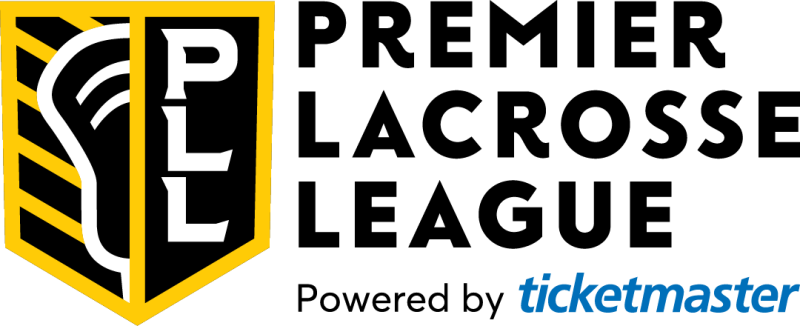The Premier Lacrosse League is going home.
The men’s professional lacrosse circuit’s eight teams were assigned to geographic locations Tuesday. The team affiliations are:
Boston Cannons New York AtlasPhiladelphia Waterdogs Maryland Whipsnakes Carolina ChaosDenver Outlaws (formerly Chrome Lacrosse Club)Utah Archers California Redwoods
“Make no mistake,’ co-founder and president of the PLL Paul Rabil said, ‘this is the second-biggest day in PLL history.”
The first being the launch of the league in 2018, obviously. But over the past five years, the PLL did not have teams operating in a traditional ‘home and away’ schedule and instead deployed a touring model across the country.
Which led to the historic day Tuesday.
‘You have to bring back traditions while being a trailblazer,’ PLL co-founder and CEO Mike Rabil said. ‘So it’s really exciting.’
How were PLL team locations picked?
The PLL embarked on an 18-month process to figure out the team locations. Leaders evaluated existing fan data, broadcast viewership, ticket sales and youth participation rates to nail down their new homes.
On the first day fan voting was offered to fans, more than 50,000 people participated online. Because the league doesn’t own venues, availability and fit for lacrosse was an outsized part of the equation, Rabil said.
When the league merged with Major League Lacrosse in 2020, the PLL tripled its data set by acquiring access to former pro teams that played in specific markets.
‘What got us here won’t get us there,’ Paul Rabil told USA TODAY Sports. ‘And there, for us, is going after the hundred million casual sports fans. Here was successfully introducing the Premier Lacrosse League to lacrosse fans, not only domestically, but around the world. Those fans, they’re your core. They know who the players are.
“If you don’t know who our players are, you root for your home town. And that’s what we’re excited to tap into now.”
Why PLL put teams in California, Utah, Carolina
Forget the old stereotype is that it is a regional sport localized to the northeast, Mid-Atlantic and parts out West. Lacrosse has seen growth throughout the country over the past two decades, particularly in California and the mountain regions.
In Utah, fans traveled from Idaho for the PLL’s event there this year. And the league’s relationship with Real Salt Lake owners David Blitzer and Ryan Harris, both of whom are NBA owners, helped.
The existence of a California team is emblematic of the sport’s rise out West, Paul Rabil said. After all, the league is headquartered in Los Angeles and the growth from the Bay Area to the beaches of San Diego ‘continues at a really high clip.’
“For us, to bring all three of those (cities) together under one team felt like something that other sports leagues haven’t been able to do and is something that we’re really excited about rallying around for west coast lacrosse players,” Rabil said.
And like in Utah and Carolina, the generic geographic placeholder was intentional.
“We then have the flexibility to move around the region or the state to optimize for the weekend, for our fans, for our players, and the venue,’ Paul Rabil said.
Giving Denver the Outlaws, one of the MLL’s strongest brands, was an easy choice.
And Carolina was an effort to reach the fan in the southeast. Turnout at events in Charlotte, North Carolina have always been positive, and historically great college programs such as Duke and the University of North Carolina in the area are other draws.
PLL schedule explained
The league will continue to operate a 14-week, tour-based season, with eight of the league’s 10 regular season game weekends to be held in teams’ home markets. Two teams will be on a bye each week, while the home team hosts “homestand weekend” and play two games in two days.
Continuing to tour was important to the PLL, Mike Rabil said. It allows them to be efficient and to invest more in the fan, player and partner experiences.
“The model of touring allows us to aggregate resources, lower operating costs and max our operating dollars to those stakeholders which will drive value back to the league and raise the tides for everyone,” Mike Rabil said.
Having the chance to keep collecting data from the pair of neutral site weekends, with an eye toward expansion, is another reason behind holding onto the touring model, Mike Rabil said.
Two regular season weekends will be held in other markets, with the All-Star Game, playoffs and championship held at neutral locations yet to be announced.
Eventually, Paul Rabil said, the goal is for the league to own and operate its proprietary venues in the home locations so players can be based there if they so choose.
‘Part of our short-term vision board is how to get lacrosse – how to get our players in-market, full-time, and own venues,’ he said. ‘If we want to build the next MLS and the next UFC, which we’ve been on record saying, we have to build plans and timelines against that. There’s a lot of moving targets now and we feel like as entrepreneurs that’s something that we need to get out and do.’

